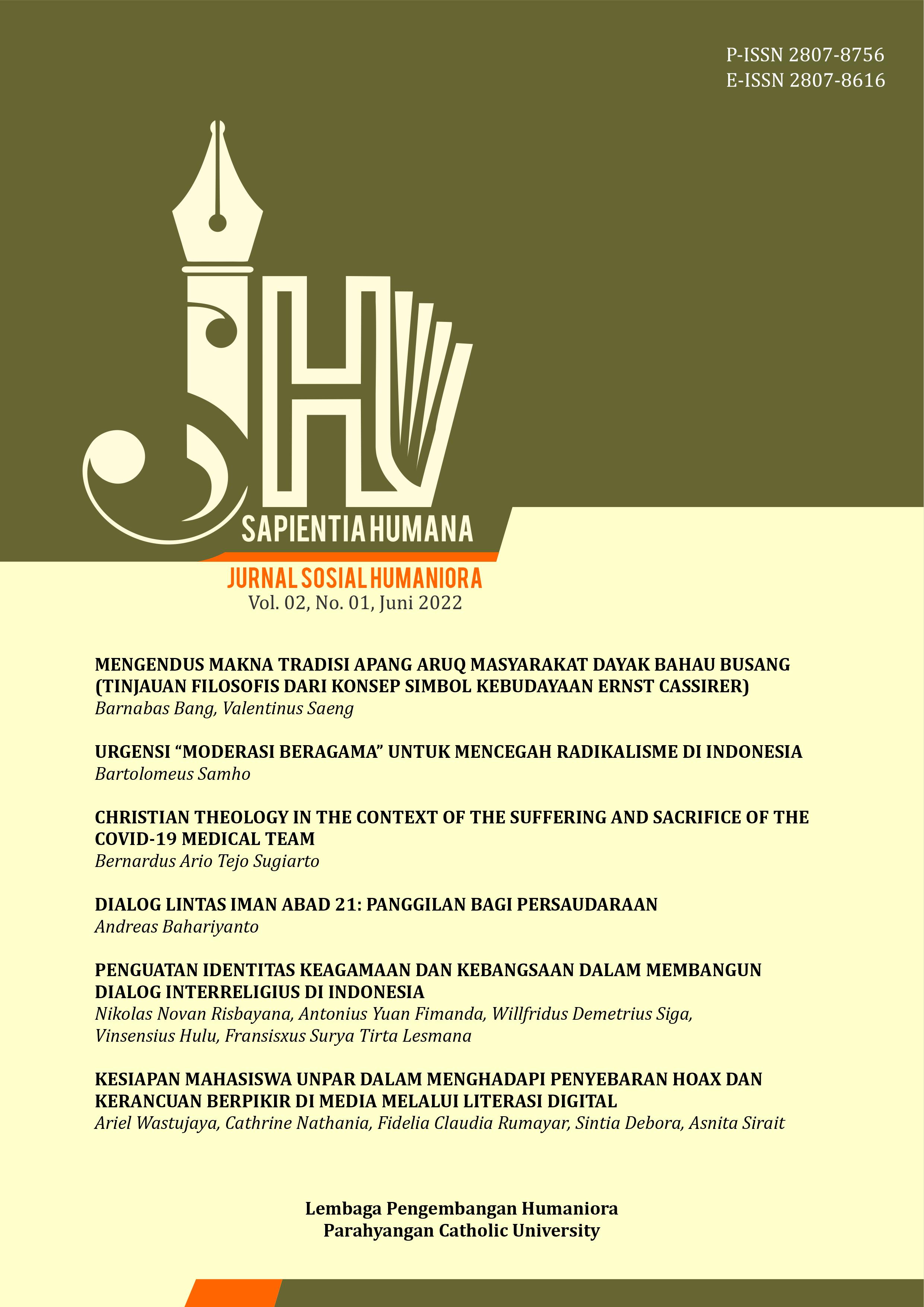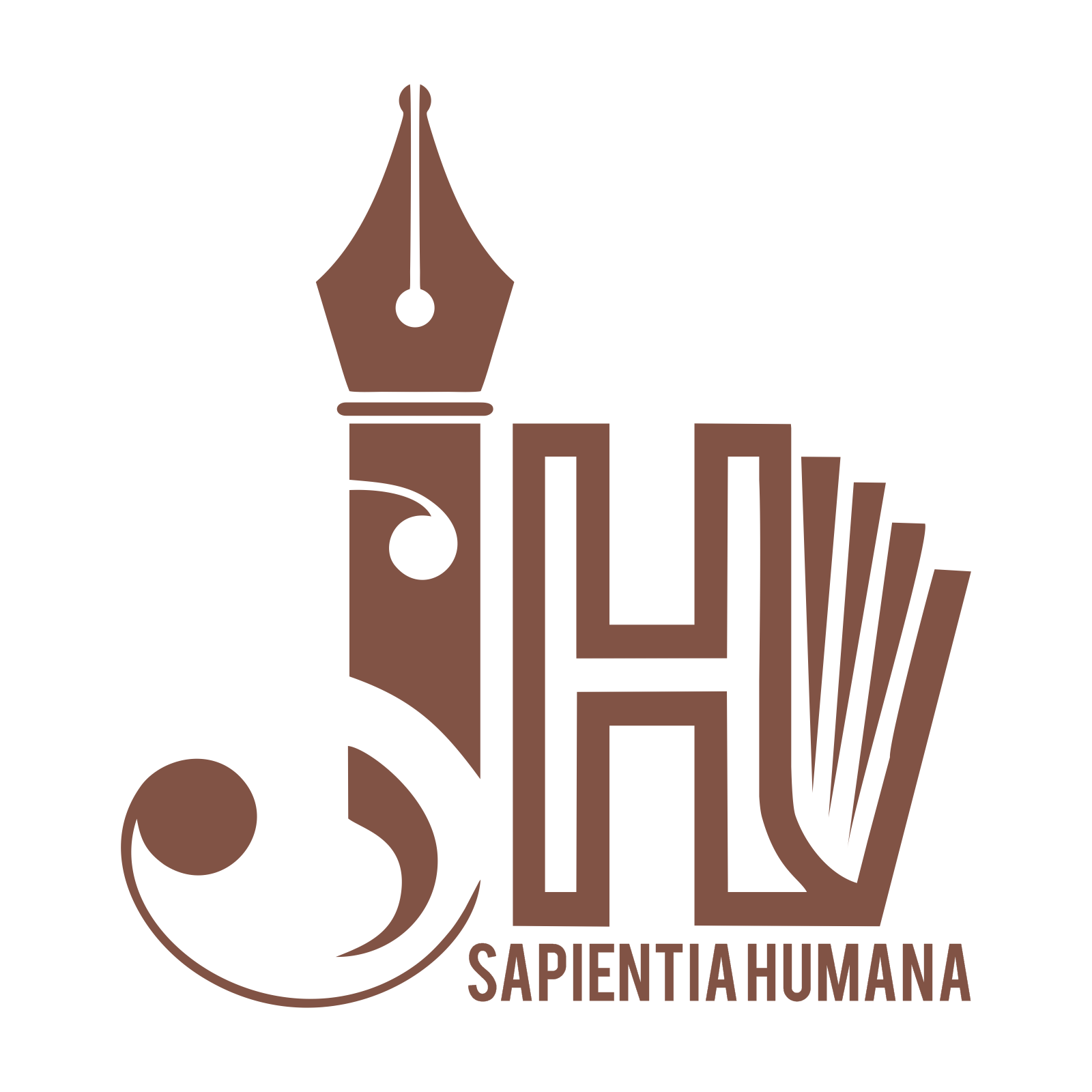DIALOG LINTAS IMAN ABAD 21: PANGGILAN BAGI PERSAUDARAAN
Bahasa Indonesia
DOI:
https://doi.org/10.26593/jsh.v2i01.5798Abstract
The main narrative in Fratelli Tutti's encyclical calls and challenges interfaith dialogue. This affirmirms the ontological nature of man as a social entity with an interdependent character on several important and intrinsic elements such as community and its social environment which can then be seen as a kind of multicultural encounter. Continuously, interfaith dialogue, growing “at the grassroots” and community-based includes reciprocal and sustainable relationships. Individual and collective consciousness is strongly influenced by the relationship with the social environment and its universal context, including faith, belief, science, technology, values, art, language, habits, customs. The literature study method applied in this study shows that ethical awareness gives birth to responsibility and moral considerations at the social level when interacting, producing, relating, and being cultured. So this ontological and ethical dimension - interdependence and moral responsibility - is one of the main value systems in any vision of interfaith dialogue. This means that this interfaith dialogue involves a major and strategic vision and project of the 21st century on how human civilization reaffirms the nature of humanity in togetherness with others and the environment.












